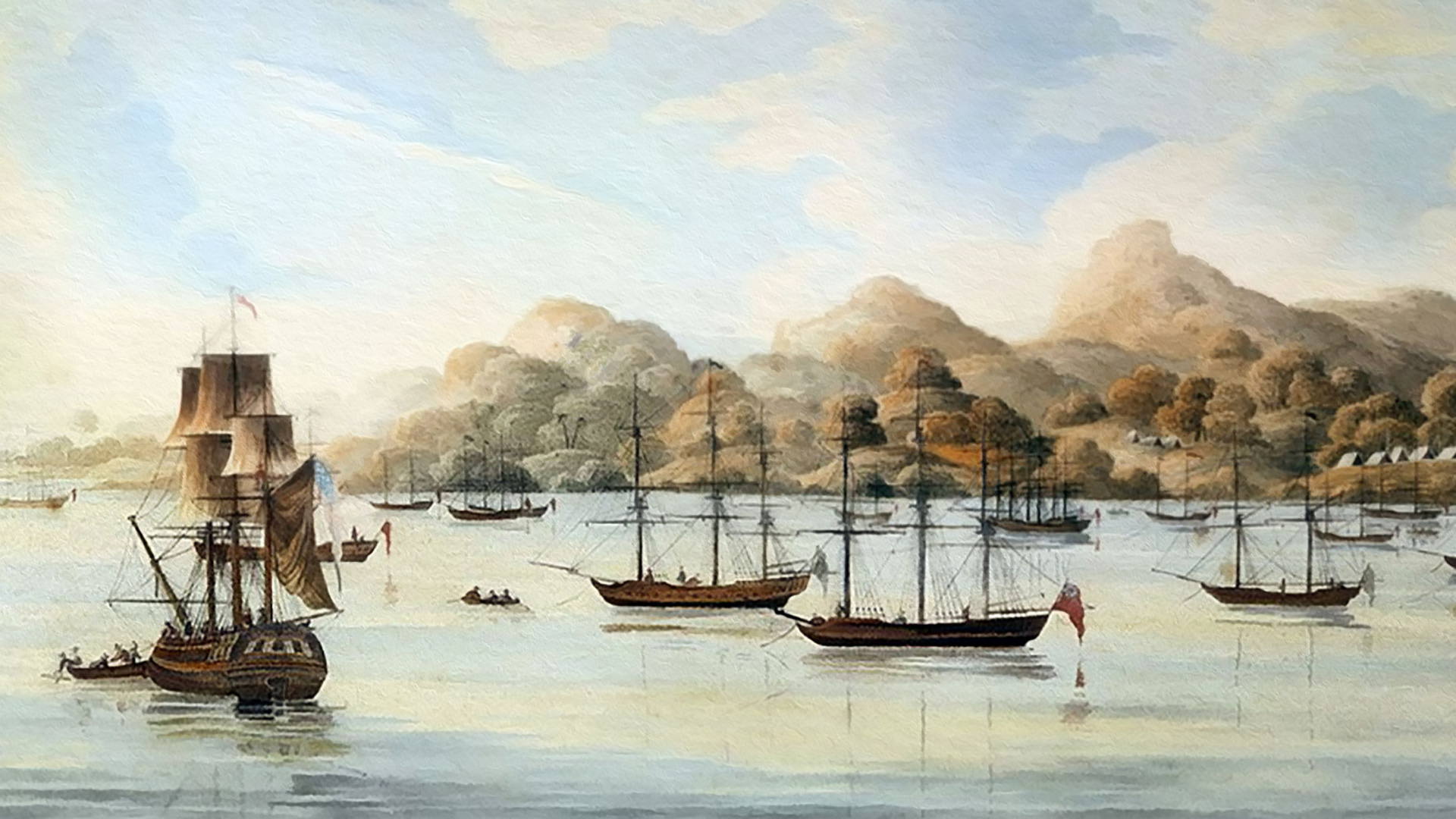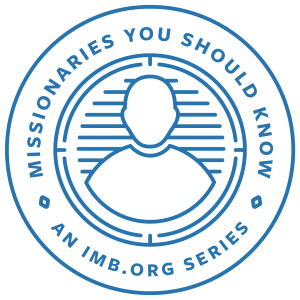
 Want to hear an impressive list of accomplishments from an eighteenth-century runaway slave with humble beginnings in the southern British colonies?
Want to hear an impressive list of accomplishments from an eighteenth-century runaway slave with humble beginnings in the southern British colonies?
Here you go.
David George pastored the first all-black Baptist church in America, planted the first black Baptist church in Canada, and established the first Baptist church on the continent of Africa. He also recorded an account of his life that became one of the most important early slave narratives, especially in regard to the abolition of slavery in Britain. Impressed yet? Me too.
In Search of Freedom
David George was born a second-generation slave in Virginia around 1743, but around the age of nineteen, he fled south to Georgia after watching his mother being whipped and left to die. For the next decade, he lived a difficult life on the run in the wilderness of Georgia. He was captured and traded several times until finally settling on a plantation in Silver Bluff, South Carolina.[1]
David recalls being disturbed during that time by the conviction of sin in his life. “I saw myself [as] a mass of sin. . . . At last in prayer to God, I began to think that he would deliver me, but I did not know how.”[2]
“I saw myself [as] a mass of sin. . . . At last in prayer to God, I began to think that he would deliver me, but I did not know how.”
In a miraculous and divinely ordained reunion, David’s childhood friend from Virginia, George Liele, passed through town on a preaching tour. Reverend Liele shared Matthew 11:28 with David, at which time he realized he was “weary and heavy laden, and that the grace of God had given [him] rest.”[3]
Trials and Tribulations
Between 1773 and 1775, David George, his wife, and six other slaves at Silver Bluff were baptized and formed into the first all-black Baptist church in North America. David taught himself to read and became their first official pastor as his congregation grew to thirty members. However, it wasn’t long before the Revolutionary War was at their doorstep and George’s master, a rebel sympathizer, fled and left all his slaves behind. The British promised freedom to any escaped slaves loyal to the crown. So, David and most of his congregation pledged their loyalty to Britain and moved south to Savannah, Georgia.
After surviving three difficult years of war, sickness, and starvation David George and his congregants found themselves on the losing side of the war. Promised freedom and land in Nova Scotia, they boarded a ship with other black Loyalists and set sail in November of 1782. Unfortunately, this was not the promised land they were hoping for.
They were greeted by a harsh winter, lack of housing, and communities in chaos because of the influx of Loyalists from America. Undaunted, David immediately began holding outdoor meetings to preach. “I was so overjoyed with having an opportunity once more of preaching the word of God, that after I had given out the hymn, I could not speak for the tears.”[4]
By 1783, he had formed the first Baptist church in what is now Canada. Over the next six months, the church grew tenfold. Even whites joined his church in Shelburne. When he baptized one white couple, the outdoor baptismal service incited a race riot. Baptism by immersion was rare enough in the region, but to have a black man baptize whites was considered outrageous.
Persecution increased against the church, and soon David’s home was destroyed, and his church nearly burnt down.[5] Nonetheless, David’s fame grew and he began making missionary tours across New Brunswick and Nova Scotia. David usually traveled on foot, and it was said that he once walked eighty miles to baptize fewer than a dozen converts.[6] While returning from one of his missionary journeys, David’s boat was blown off course in a winter storm and his legs were severely frostbitten up to his knees. It took him months to recover and walk again, so he had a wooden sled made to pull him to church so he could preach.
Persecution also continued to grow against all the free blacks. Their freedom from slavery didn’t mean they were free from racial prejudice and greed. After a few years, many poverty-stricken blacks turned to indentured servitude to survive. This led David George to partner with Lieutenant John Clarkson of the Sierra Leone Company, a British association of abolitionists, philanthropists, and businessmen. They wanted to recruit free blacks to return West Africa and resettle.
A New Beginning
On January 15, 1792, fifteen ships carrying 1,196 blacks set sail for Sierra Leone. Even on the rough crossing back to Africa, he led more people to the Lord. When they arrived in West Africa on March 7, 1792, they named their settlement Freetown. Among the settlers were some who had been born in that region of Sierra Leone and forced into slavery a few decades earlier. One woman was reunited with her mother. Another met the man who had sold him into slavery and gave him a present for having unwittingly been the means of his conversion to Christianity.[7]
David began to build a meeting house, and he again became an active evangelist. In the first few weeks, he baptized five new believers in the Sierra Leone River. David George was now the first Baptist pastor in Africa and had founded the first Baptist church in Africa. This was the beginning of what would be almost two more decades of missionary and pastoral service in Sierra Leone.
An Example for All
David George is a fine example of a believer who faced the most difficult of trials without ever faltering in this faith. What many would perceive as abysmal circumstances, he saw as opportunities to minister and share the gospel. Cruel slave masters, enraged rioters, crooked politicians, deadly diseases, wild animals, freezing cold and blazing heat could never steal from David George the joy he found in proclaiming the gospel to anyone who would lend him an ear.
William Haun lives in northern Ghana in the heart of the ancient Mamprusi kingdom with his wife and their two children. He’s known locally as the “Sulimiinsina’akyinnaaba” or “young white men’s chief.” He loves learning Mamprusi proverbs, history, and folk tales, and using those to communicate his faith effectively.
Image source: “Canadian ships under John Clarkson with 1,100 slaves arriving in Sierra Leone, 16th March 1792” (Watercolor by George James Rowe after John Beckett)
Sources:
[1] Gordon, Grant. From Slavery to Freedom: The Life of David George, Pioneer Black Baptist Minister. Vol. 14. Hantsport, N.S.: Lancelot, 1992. Print. Baptist Heritage in Atlantic Canada. 15-16.
[2] Rippon, John, ed. “An Account of the Life of Mr. David George, from Sierra Leone in Africa; Given by Himself in a Conversation with Brother Rippon of London, and Brother Pearce of Birmingham.” Baptist Annual Register 1 (1793): 475.
[3] Rippon. 475.
[4] Rippon. 478.
[5] Marston, Benjamin. Diary of Benjamin Marston. July 26, 1784. Black Loyalists: Our History, Our People. Canada’s Digital Collections Program. May 31, 2018. <http://blackloyalist.com/cdc/documents/diaries/marston_journal.htm>
[6] Kimber, Stephen. Loyalists and Layabouts: The Rapid Rise and Faster Fall of Shelburne, Nova Scotia, 1783-1792. Toronto: Doubleday Canada, 2008. 221.
[7] Fyfe, Christopher. A History of Sierra Leone. Vol. 1. London: Oxford UP, 1962. 53. Print.

